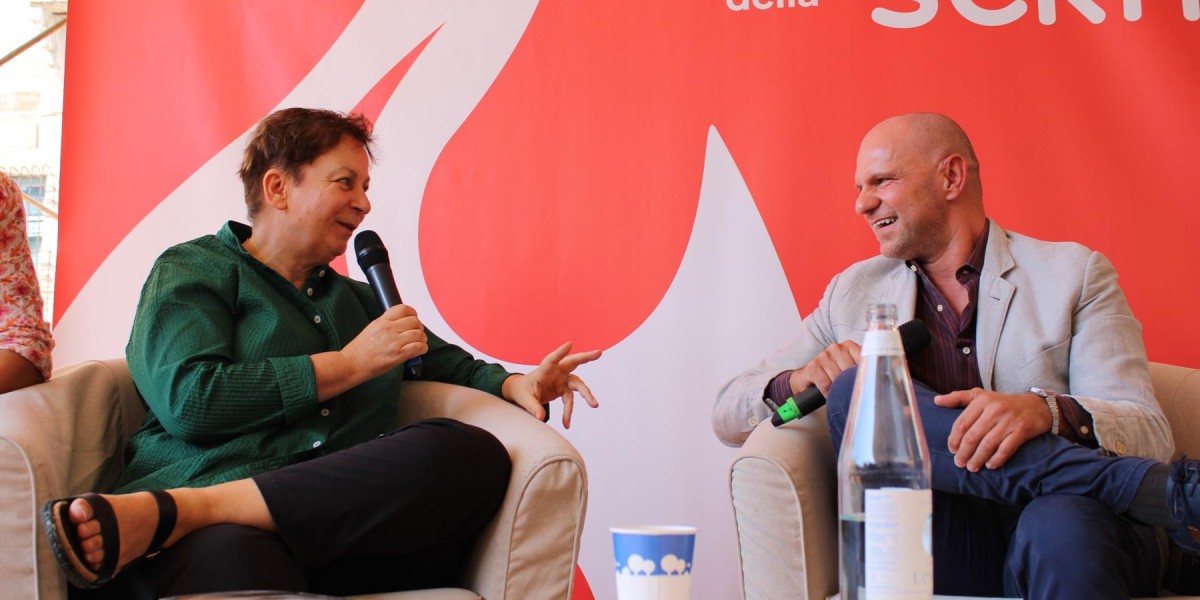
Anne Enright on taking possession of the story
Il fuoco sacro della scrittura is a brand new event format at Festivaletteratura. Why do writers write? What is creativity? Where does it come from? Is the need to create a blessing or a curse? These questions are explored twice a day during thirty-minute interviews where Italian and international authors talk about their relationship and history with the act of writing.
Anne Enright is an Irish author, director, and producer, with literary work that includes short stories, novels and narrative non-fiction. Her novel The Gathering was the starting point for a discussion led by TV writer and brand communicator Christian Mascheroni. For Enright, telling a story is an investigation effort. Referring to the opening of a door, an image which is key to The Gathering’s plot, Enright said that what is important is not only the discovery of what lies beyond, but also the act of understanding the meaning of it. To the suggestion that writers are possessed by their stories, the author responds that she’s the one possessing the story. The process takes time and several phases of writing, rewriting, and polishing: developing the thread of an idea from a one-line tune to a full symphony.
Enright's command of the technical nature of storytelling was exemplified by the author’s explanation of her plotting strategies in connecting the short stories, or interlinked points of view in The Green Road, about siblings whose lives have taken divergent paths. Enright then talked about the particularly strong connection between writing style and character identity. She explained how each character necessarily represents a part of the thoughts and attitudes of the person writing them, and that this often scares authors into thinking that all their characters might be very similar and autobiographical. But she trusts the multiplicity each person contains. Changes in writing style are tools to let specific aspects of oneself inform the characterisation of a character in a way that doesn’t feel artificial.



